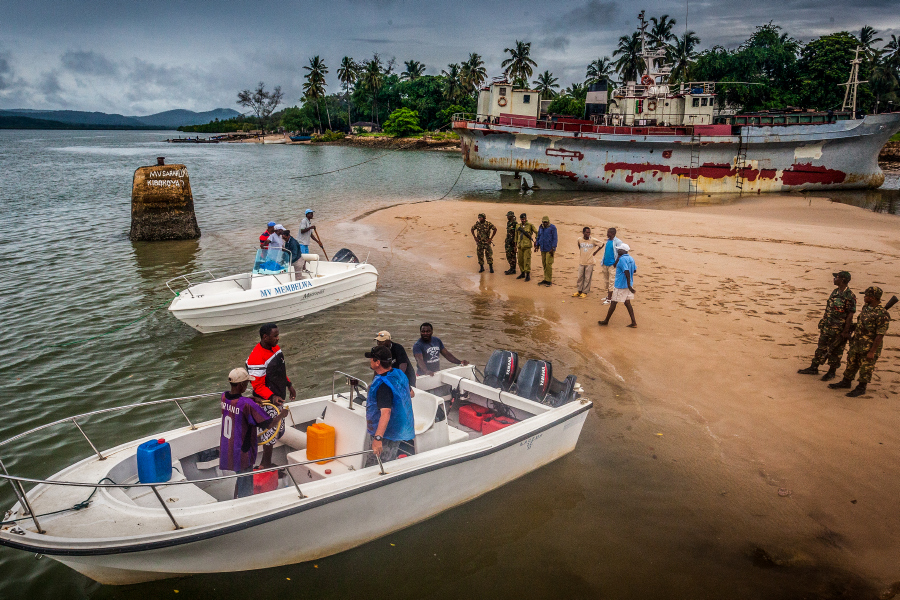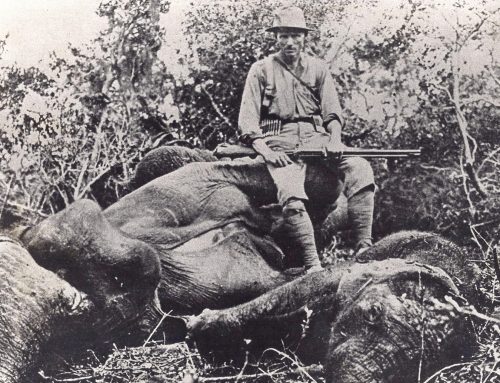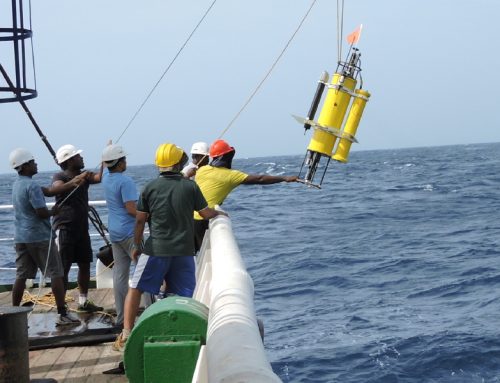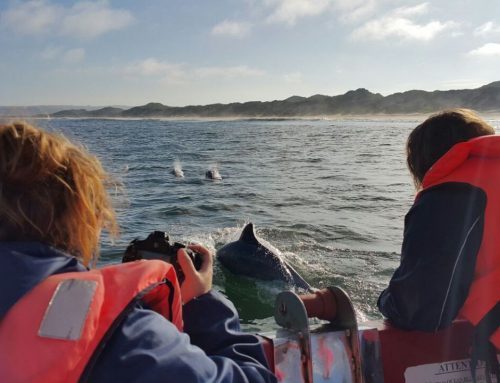
Organised crime with a link to the illegal harvesting, processing and trading of fish and seafood globally is so huge that it is in effect a parallel economic system that is undermining sustainable economic growth.
“Countries are being deprived of taxes; citizens of jobs, food and income; and fisheries and environments are being destroyed. Africa is particularly vulnerable and loses more than $20 billion per year. This is a battle we have to win,” says Professor Hennie van As, public law professor at Nelson Mandela University, an admitted advocate and founder and head of FishFORCE, South Africa’s first Fisheries Law Enforcement Academy.
Van As explains that fisheries crime, or “multi-crimes” affecting the fisheries sector range from illegal capture of fish to human trafficking and forced labour, fraud, forgery, corruption, money laundering and tax and customs evasion. These crimes pose a significant challenge to fisheries law enforcement agencies in developing countries across the world.
“We therefore established FishFORCE in 2016 with the aim of achieving knowledge and intelligence led investigations and prosecutions of criminals engaged in fisheries crime in Africa and globally,” says Van As. FishFORCE is a partnership between Nelson Mandela University, the Norwegian Ministry of Foreign Affairs and South Africa’s Department of Agriculture, Forestry and Fisheries (DAFF). It has the buy-in from Interpol, the African Union and the United Nations Office on Drugs and Crime.
FishFORCE has been advocating that fisheries crimes be addressed as a priority crime and as organised crime and racketeering under the Prevention of Organised Crime Act, with severe penalties of 25 years to life. “This is critical because fisheries crime cases that have thus far been prosecuted as Illegal, Unreported Unregulated Fisheries have had very limited success with penalties amounting to little more than a rap on the knuckles. It is encouraging to see that three recent major abalone (perlemoen) racketeering cases in South Africa – State v Blignaut; State v Miller and State v Brown – have been prosecuted as priority crime, with sentences of 18 to 20 years.”
Norway is contributing over R41 million over five years to FishFORCE. Norwegian Ambassador Astrid Helle says: “The price to society of organised fisheries crime needs to be clearly understood. This, together with climate change and marine pollution goes directly against sustainable ocean resources which is a high political priority for both Norway and South Africa. The oceans represent a key source of income and food for many countries. Oceans know no borders and combatting organised fisheries crime and the associated multi-crimes is in everyone’s interest. We regard South Africa as a key partner in taking a leadership role in this and in the global shift towards a sustainable ocean economy.”
It is estimated that 60 million people in the Western Indian Ocean (WIO) directly depend on the ocean for their food and livelihoods. The WIO extends all the way up the eastern coast of Africa, including Somalia, Kenya, Tanzania, Mozambique, and the island states of Comoros and Madagascar. The WIO is experiencing a chronic food security problem.
“Together with the National Prosecuting Authority, we are getting to the bottom of why prosecutions for fisheries-related crimes often fail,” explains van As. “The regulating, policing and law enforcement of fisheries vessels in the past has been too compartmentalised and full of loopholes because of the large number of different players involved.
“Illegal fisheries vessels take advantage of this. They commit document fraud to under-report catches, they fish illegally and change their flags (because countries only have jurisdiction on the high seas over vessels that fly their flags) or they transfer illegally caught fish from one boat to another. We are now closely collaborating with the South Africa Police Service, Defence Force, Navy, National Prosecuting Authority and Home Affairs to develop a combined offensive.”
FishFORCE is training Fisheries Control Officers (FCOs), police officers and prosecutors in South Africa and Kenya, and along the East African coastline and Western Indian Ocean where it is opening FishFORCE Academies in Angola, Namibia, Mozambique, Tanzania, Madagascar, Mauritius and Seychelles. There is already one in Kenya. FishFORCE is also assisting with training along the Indian Ocean Rim, including countries like Indonesia. “The reason is that organised crime in the fisheries environment does not know borders and neither do marine living resources,” says Van As.
The training developed and delivered by FishFORCE is linked to formal qualifications, such as a Higher Certificate in Criminal Justice and a Diploma in Law Enforcement, thus providing an articulation pathway for trainees. This was specifically developed in order to promote fisheries law enforcement as a career choice by professionalising this sector.
“In 2018 FishFORCE trained 276 delegates through its Law Enforcement by Peace Officers (LEPO) short learning programme, at a success rate of 90%,” says van As. “The training was inter-agency and cross-border in nature, and focused on prevention of corruption, taking of statements as well as species identification and fisheries technology.”
For post-training support, FishFORCE has established an electronic helpdesk through which support is given to SAPS, fisheries control officers (FCO’s) and the National Prosecuting Authority.
Whatsapp groups have been established to assist law enforcement with requests for assistance with regard to suspect vehicles and people. Quite a few successes have been achieved through this in South Africa, especially on the West Coast where a number of arrests were effected. The whatsapp groups are also linked to scientists who can assist with species identification.
Port security is critical to the combatting of fisheries crime as they are actively used in organised crime as key points of entry and exit for commodities associated with fisheries crime e.g. the export of marine living resources, the import of drugs and firearms, and other crimes such as human trafficking.
Port security officers are tasked with the control of goods entering and leaving harbours and they are on duty 24 hours per day. However, they are not trained to differentiate between species and to identify whether fisheries products that are leaving the country are illegal or not. They are also not trained to detect smuggling or tampering with containers or to identify illicit substances such as drugs that are often associated with the poaching of marine living resources.
This year the FishFORCE Academy is training port security officers and their supervisors and managers in South African ports. FishFORCE is currently investigating the use of drone technology to assist agencies with monitoring and surveillance operations.
A September 2018 report by TRAFFIC (a leading non-governmental organisation
working globally on trade in wild animals and plants) titled Empty Shells says the calculated loss of at least 96 million illegally harvested abalone alone from 2006 to 2016 is approximately R10billion. In addition, an analysis of trade routes suggests that up to 43% of the illegally harvested abalone was traded through a number of non-abalone-producing sub-Saharan African countries to Hong Kong between 2000 and 2016. Abalone is but one of thousands of species being illegally harvested.




